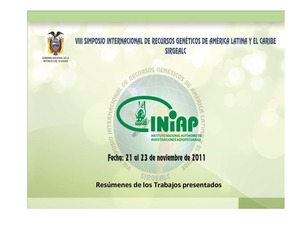Learning together: responding to change and complexity to improve community forests in the Philippines
Community forestry in the Philippines has gone through a long process of change over the last thirty years. It reached a high level of achievement with the creation of a comprehensive and integrated programme called Community-Based Forest Management (CGFM) in 1995. In this programme, local people are recognised as partners in the management and protection of the country's forests and forest resorces. However, the government, and other local stakeholders still face problems in implementing the programme effectivelly.
Le marché domestique du sciage artisanal au Cameroun: État des lieux, opportunités et défis
Le Cameroun a adopté une nouvelle loi des forêt en 1994 qui mettait l’accent sur le secteur forestier industriel, à grande échelle, et orienté vers l’exportation, tout en négligeant le bois produit avec des opérations d’échelle plus petite, pour le marché intérieur. Ce bois n’est pas enregistrée dans les statistiques officielles et il est principalement produit sans titre valide d’exploitation.
Les Approches participatives dans la gestion des ecosystemes forestiers d'Afrique Centrale: revue des initiatives existantes
Developments in the international institutional context and in the capacity of governments to ensure sustainable forest management in Central Africa lead to new approaches to participatory management being explored. The author reviews current initiatives in this field in Congo Brazzaville, Gabon, Cameroon, Central African Republic and Equatorial Guinea. Such initiatives are still in an experimental stage and aim at answering issues linked with conventional forest management as well as meeting prerequisites imposed by international organisations for granting aid to development.
Livestock and deforestation in Central America in the 1980s and 1990s: a policy perspective
This study analyses seven factors used to explain the conversion of forest to pasture in Central America between 1979 and 1994: 1) favourable markets for livestock products; 2) subsidised credit and road construction; 3) land-tenure policies; 4) limited technological change in livestock production; 5) policies which reduce timber values; 6) reduced levels of political violence; and 7) characteristics specific to cattle which make conversion attractive. Deforestation rates in Central America declined in the 1980s, but remained high.
Managing forest resources in a decentralized environment: lessons learnt from the Malinau research forest, East Kalimantan, Indonesia
Managing forests and improving the livelihoods of forest-dependent people: reflections on CIFOR’s social science research in relation to its mandate for generalisable strategic research
CIFOR has been actively engaged in field research in Indonesia focussing particularly on the role of forests and forest products in generating sustainable livelihoods for local users. Issues such as incentives and institutional structures for equitable and sustainable management systems have been highlighted in this research, which has been undertaken with the active co-operation of local NGOs.
Managing smallholder teak plantations: field guide for farmers
The typical practice by smallholder teak growers of letting trees grow without management input has resulted in poor quality plantations. Various questions arise when farmers start to better manage their teak plantations. This book provides practical guidance in addressing these questions by explaining in detail the techniques of parent tree selection, seed preparation, seedling production, planting, fertilising, thinning, pruning, controlling pest and disease and harvesting. To be more easily understood, the descriptions are complemented by illustrations, photographs or tables.
Manual praktek mengelola hutan dan lahan: suatu kombinasi pengetahuan tradisional masyarakat Dayak Kenyah dengan ilmu-ilmu kehutanan dan pertanian
This simple manual is intended for general guidelines on traditional methods in managing natural resources. It is based on the indigenous/traditional knowledge of people of Dayak Kenyah Uma' Jalan society, East Kutai, Kalimantan, Indonesia. Local traditional knowledge is one of the important components to utilise and conserve the natural resources. This manual shows how to prepare the land for planting food crops, community forest management procedures and fire prevention.
Luz de America: comunidad y biodiversidad Amazonica
Problems with governance of forests are closely linked to incompatible interests between different stakeholders. Having a clearer understanding of the relative importance of forest landscape functions among stakeholders can bring much clarity about why governance problems persist. The voice of the weakest actors is often insufficiently heard in decision-making processes that affect how stakeholders can use forests.


